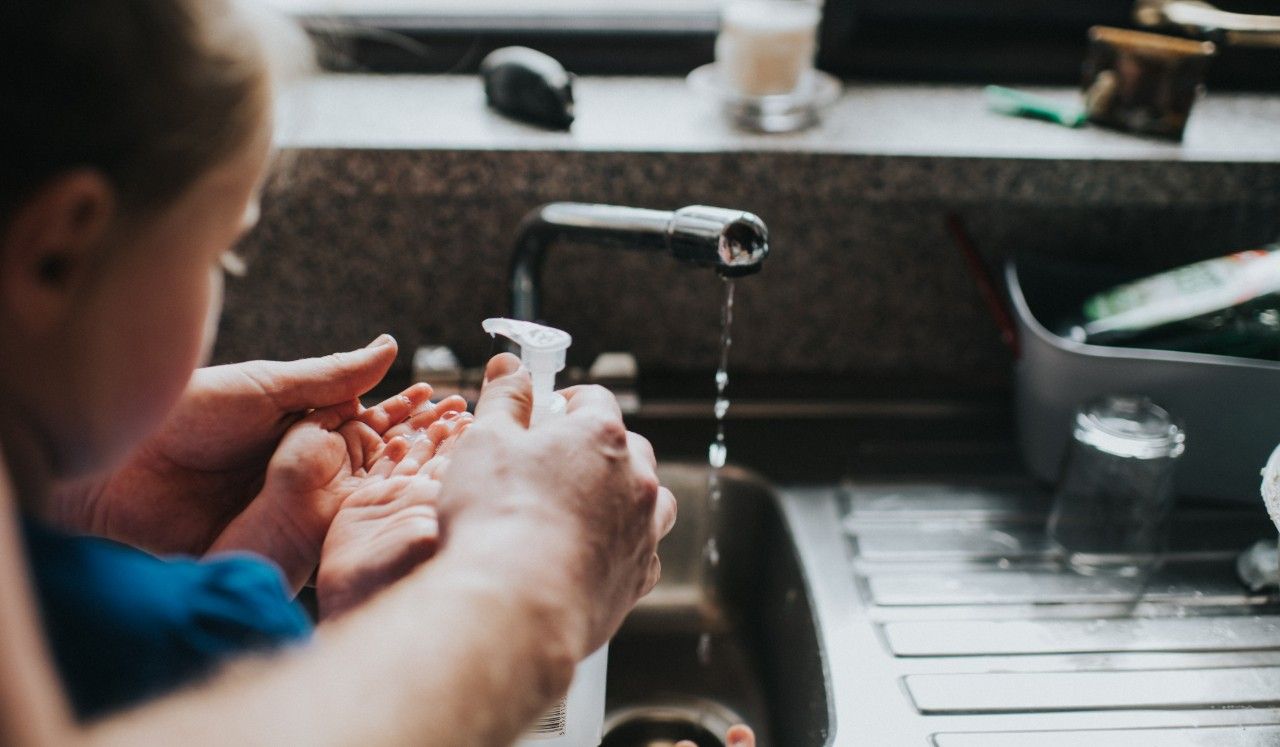Weight and body image are thorny topics for many people. But for kids with changing bodies and surging hormones, discussions about body image can be traumatizing.
Who can blame you for dreading “the talk” on such things?
“But you must do so if your child is struggling with self-esteem,” says Dr. Barbara Taylor-Cox, MD, pediatrician at Children’s Memorial Hermann Pediatrics | West University Clinic.
When should I have “the talk” about weight with my kids?
“So many physical changes occur during puberty,” Dr. Taylor-Cox says. “Your child’s body image is so in flux, and they always compare themselves to others. They want to fit in and look the same as their friends.”
Yet few teens and preteens measure up to all their friends – not to mention cheerleaders, athletes and actors on social media.
As a parent, it’s important to reassure your child that it’s normal to have feelings of inadequacy based on unrealistic comparisons, she says. This should be a conversation that starts at puberty and continues through their teen years.
“You can point out that many images of perfect bodies are distorted and digitally manipulated,” Dr. Taylor-Cox says. “And you can talk about how social media can be cruel and demeaning.”
“Also point out that the fad diets some celebs claim to follow don’t work,” she says. “They’re too restrictive in calories.”
In “the talk” about weight, what words should I use—or avoid?
In your own youth, perhaps your parents, siblings or classmates made you feel less than ideal visually. Now you don’t want to repeat history and cause any negative feelings around the topic with your own children.
“Start the talk by focusing on how they feel about themselves, their school, their friends and life in general,” Dr. Taylor-Cox says. “By keeping the discussion general, they won’t shut down. This can serve as a springboard into a conversation about body image and self-worth.”
You may say something like “I notice you’re concerned about how your clothes fit. Are you worried about the way you look?”
“Then focus on health and the child as a whole—not their weight,” she says. “Your role is to lift them up. Talk about their positive traits: if they’re kind, smart or have a great sense of humor. The main thing is to emphasize good health and the whole person, not weight.”
If they keep bringing up the scale, “remind them that there’s more to them than a clothing size or a number on a scale—and that their self-esteem matters more than their weight. Also let them know that your hope for them is that they are comfortable with and feel good about their body, because that leads to greater self-esteem and happiness.”
How do my nonverbal cues impact my child?
If you’re constantly bemoaning your own weight, your child may internalize the message that the scale determines your value. “Teens watch everything you do,” Dr. Taylor-Cox says.
Be thoughtful about what you say and how you act when it comes to your own body, she says. If you have a negative self-image, refrain from deprecating yourself when speaking to your children.
“Don’t obsess about your own appearance around your child. If you’re obsessing about your own weight, they’ll emulate that,” she says.
My child is being bullied. What do I do?
It’s concerning to see or hear your child cry after school due to teasing from other students regarding their weight.
If bullying is the problem, tell your child that most bullies are not happy with themselves and in turn want to take out their own frustrations and negative self-image on someone else. Inform your child to try to ignore bullies and not be hurt by what they say, and provide them a safe space for them to vent about their experiences.
“If it’s a sibling who says something negative about a child, you shut it down. You explain to the sibling that it’s hurtful and not something you do,” she says.
Also, don’t contribute to negativity, even unwittingly. “Don’t shame children for their size,” Dr. Taylor-Cox says. “You can explain that our body types can be predetermined by genetics. And don’t nitpick about specific foods and calories they consume. You can’t throw too many rules at a teenager all at once.”
When should I be concerned that my child has an eating disorder?
Look for signs that they may need help from a professional. These include obsessing about what to eat, wearing baggy clothing, asking for cosmetic surgeries, not wanting to leave the house and constantly studying themselves in the mirror or comparing themselves to photos.
If you suspect your child has an eating disorder (such as binging, bulimia or anorexia), don’t hesitate to bring them to their pediatrician. “Do not try to deal with an eating disorder yourself,” Dr. Taylor-Cox says. “As pediatricians, we can ask the direct questions and be the ‘bad guys.’ Parents should be their child’s advocate.”
I’m seriously worried about my child’s weight. What can I do?
If your child’s body image truly is poor and it’s causing health concerns, instill different lifestyle changes and habits to improve your quality of life. “If you and your teen struggle with weight, shift your gears toward your teen, who’s still growing and developing,” Dr. Taylor-Cox says. “Then focus on good health, not a ‘good’ weight.”
You can start by adopting habits as a family, including eating healthier food and exercising more. “Cook together and walk together, 30 minutes three times a week,” she says. “Together, you also can drink more water and cut down on fast foods, salt and trans fats.”
Teach your kids to eat only until they’re satisfied, and refrain from offering second helpings or late-night eating beyond fruit and low-fat whipped cream. “Cut out the Cs: candy, cookies, chips and colas that are sold in the center aisles at the supermarket,” she says. “Those are the killers for late-night snacking, and it’s the parent’s responsibility to not have them in the house. If they are, children will find them.”
The Academy of American Pediatrics’ HealthyChildren.org website is a great resource for body image information, Dr. Taylor-Cox says.
“Your pediatrician or family practice physician also can help you frame discussions to boost your child’s positive body image.”


